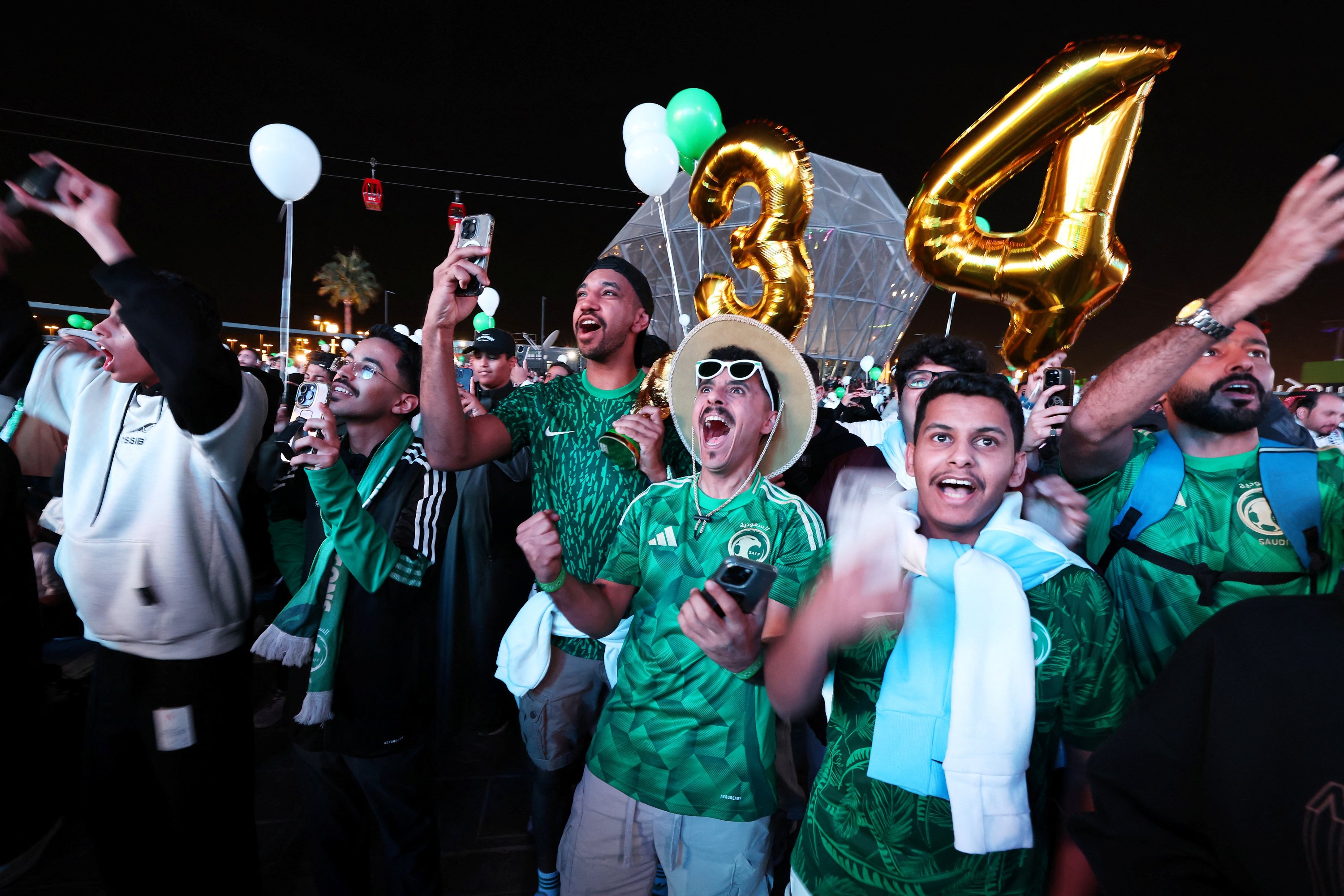Saudi Arabia’s appointment as the host for the 2034 FIFA World Cup marks a major milestone in its bid to establish itself as a global hub for major sports events.
However, several key questions remain regarding logistics, social reforms and geopolitical challenges in the lead-up to the tournament.

Stadiums and infrastructure
Saudi Arabia has proposed 15 stadiums, eight of which are still in the planning stages, spread across five cities: Riyadh, Jeddah, Abha, Al Khobar and Neom.
The capital, Riyadh, will host both the opening match and the final at a 92,000-seat venue.
Innovative designs are planned, including a stadium perched 350 meters above street level in Neom and another on a 200-meter cliff near Riyadh.
While Saudi Arabia aims to host all 104 games, speculation exists that some matches could take place in neighboring countries to manage logistics.
Tricky timing
The tournament’s timing remains uncertain, especially given the region’s extreme summer temperatures exceeding 40 degrees Celsius (104 degrees Fahrenheit).
FIFA moved the Qatar 2022 World Cup to the winter months, between November and December and similar adjustments may be necessary for Saudi Arabia.
Replicating the Qatar format for 2034 might have seemed straightforward, but unlike 2022, the situation in Saudi Arabia presents unique challenges.
As a Muslim nation, Saudi Arabia will be observing Ramadan, a sacred month in Islam.
Scheduling football matches during this time will undoubtedly be a difficult challenge.
January 2034 has been proposed, though it’s close to the Winter Olympics in Salt Lake City, raising concerns about back-to-back events.
Ultimately, the dates will be decided by FIFA in consultation with global confederations.
Social reforms
Saudi Arabia’s Vision 2030 modernization program includes efforts to expand women’s rights, such as allowing women to attend sports events and participate in the newly launched professional women’s football league.
Saudi Crown Prince Mohammed bin Salman (MBS) has positioned himself as a champion of reforms, even lifting the ban on women driving – an unimaginable move in the past.
The Gulf nation has also made strides in embracing women’s participation in sports.
For example, the annual WWE Crown Jewel event has become a major spectacle, where female wrestlers, though required to dress modestly, are now allowed to compete in the ring.
By 2034, female fans will be fully integrated into stadiums without restrictions.
However, the kingdom’s strict alcohol laws, which prohibit consumption in public spaces, could create challenges, especially for sponsors accustomed to alcohol sales at such events.
Geopolitical tensions
Saudi Arabia’s improved relations with many of its Middle East neighbors had been a positive sign for the World Cup bid.
However, the political landscape shifted dramatically following the Oct. 2023 Hamas incursion on Israel which in return Tel Aviv has massacred more than 44,000 Palestinians in Gaza.
Though FIFA’s bidding process mandates that all qualifying teams are welcome, the possibility of diplomatic tensions affecting the tournament remains a concern, especially in light of the 2022 Under-20 World Cup controversy.
2030 World Cup
Meanwhile, FIFA also confirmed the hosts for the 2030 World Cup.
Spain, Portugal and Morocco will share the tournament, with Argentina, Paraguay and Uruguay hosting one game each to mark the centenary of the first World Cup.
The final is scheduled for July 21, 2030, though tensions may arise over its location, with Morocco proposing the King Hassan II Stadium in Casablanca, while Spain favors a venue in Madrid or Barcelona.

